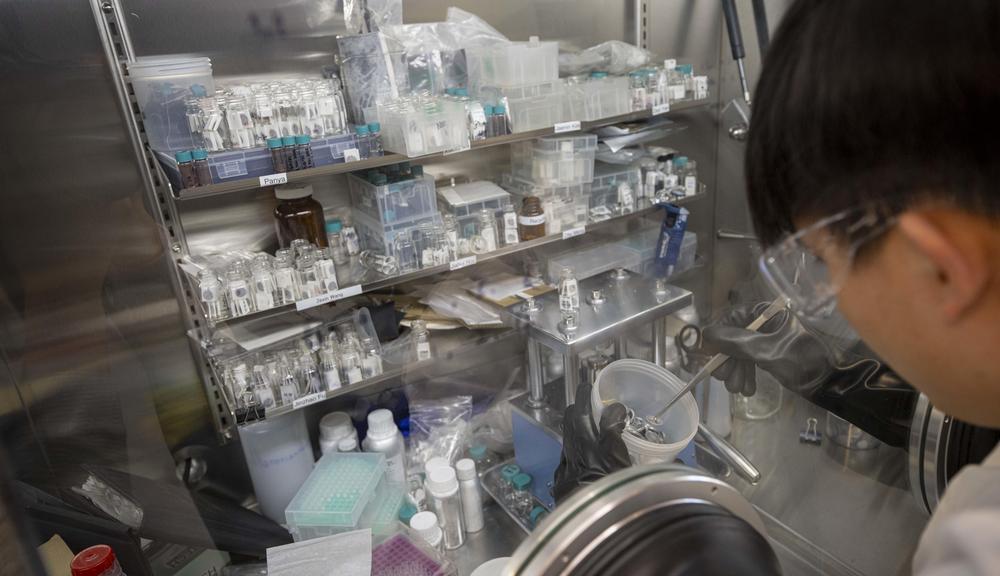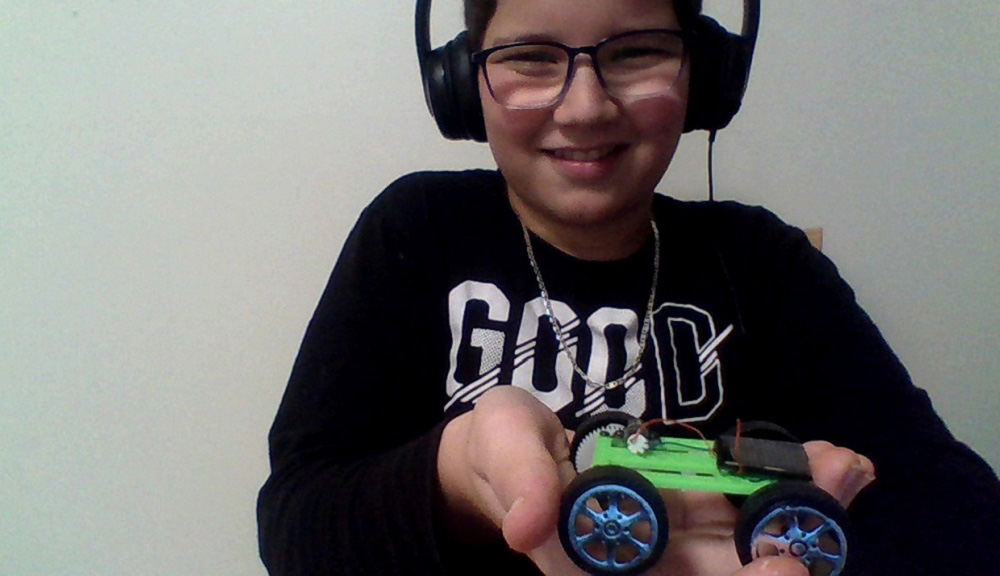At a ceremony at the Massachusetts State House today, Governor Deval Patrick (at podium) was joined by NASA Administrator Charles Bolden (in background, at left) to announce that Worcester Polytechnic Institute (WPI), as a member of the Massachusetts Space Grant Consortium, has been selected to participate in the Summer of Innovation, a new NASA initiative that will engage and train K-12 educators to use the agency’s space missions and technology to boost summer learning in STEM (science, technology, engineering, and mathematics) disciplines.
“It is very fitting and exciting for WPI to be selected as part of this NASA grant, recognizing that the work of Robert Goddard reaches back more than 100 years and WPI faculty and students continue to be leaders in technology development for many aspects of the space program,” said Lieutenant Governor Timothy Murray, who also chairs the Governor’s STEM Advisory Council. “Our administration is grateful for the partnership with WPI, particularly President Berkey’s contributions to the Governor’s STEM Advisory Council, as we advance educational opportunities for students in the Commonwealth.”
NASA selected space grant consortia in four states—Massachusetts, Idaho, New Mexico, and Wyoming—to participate in the Summer of Innovation. Cooperative agreements totaling $5.6 million were awarded to the four consortia. In Massachusetts, NASA will fund programs to be offered this summer by six university groups: WPI, the MIT Space Systems Laboratory, the MIT Edgerton Center, Tufts University, University of Massachusetts Medical School, and UMass Boston. The programs will use NASA materials on topics that are critical for NASA’s future workforce needs.
"NASA is partnering with these states in a pilot program to address our nation’s critical science, technology, engineering, and math education needs," Bolden said. "Summer of Innovation pairs the strengths of the states with NASA’s unique resources to engage more young people and their teachers and inspire and equip them to excel in these critical disciplines."
WPI has been a member of the Massachusetts Space Grant Consortium for almost 15 years and has received considerable support for undergraduate project work, graduate research in aerospace engineering, and student employment through the Summer Jobs Program. According to Nikos Gatsonis, director of WPI’s Aerospace Engineering Program and principal investigator on WPI’s Summer of Innovation proposal, the new initiative will extend this support to middle school students through a collaboration between WPI’s aerospace engineering faculty and the university’s K-12 Outreach and Women’s Programs offices.
Through this collaboration, WPI will develop a five-week summer program for middle school students and teachers and WPI students who, in addition to working toward degrees in science or engineering, are preparing for initial licensure in Massachusetts for middle and high school math and science through the university’s teacher preparation program. The program will make use of NASA materials on aeronautics and flight, space sciences (including the Sun-Earth connection and space weather), and astronautics (including concepts that are fundamental to the design of spacecraft). Gatsonis, along with John Blandino and David Olinger, both associate professors of mechanical engineering, will teach the NASA materials to the teachers and WPI students.
Under the guidance of Martha Cyr, WPI’s director of K-12 outreach programs, the teachers and WPI students preparing for teaching careers will make the NASA materials suitable for use with middle-school students. The materials, which will include many hands-on demonstrations, will be used in a two-week interactive day program for 40 students from middle schools in Central Massachusetts, to be taught by the WPI students. With the aid of WPI’s Women’s Programs and Diversity offices, middle school girls and students from low-income and underserved, underrepresented, and underperforming populations will be actively recruited for this program. The materials will be used again during Camp Reach, WPI’s award-winning residential summer program for rising 7th grade girls.
The Summer of Innovation program will be the newest addition to an extensive array of K-12 outreach initiatives at WPI. In fact, under Cyr’s direction, WPI operates one of the nation’s largest and most comprehensive university-based K-12 STEM (science, technology, engineering, and mathematics) outreach programs. It includes programs targeted at students in elementary, middle, and secondary schools, programs that seek to engage girls and students from underrepresented minorities in STEM disciplines, and programs that provide training and classroom resources for teachers.
About the Massachusetts Space Grant Consortium
The Massachusetts Space Grant Consortium consists of four-year colleges and universities, community colleges, and public outreach organizations. Representing NASA in Massachusetts, the consortium promotes public understanding of and support for space exploration and research and encourages students to choose courses of study that will lead them to enter the technical work force. One of MASGC’s primary activities is providing fellowships to Massachusetts students to enable them to engage in study and research projects and to attend meetings that they would otherwise not be able to do. MSGC is one of 52 such consortia in all 50 states, the District of Columbia, and the Commonwealth of Puerto Rico consisting of universities, colleges, industry, museums, science centers, and state and local agencies supporting and enhancing science and engineering education, research, and public outreach efforts for NASA’s aeronautics and space projects.
About Worcester Polytechnic Institute
Founded in 1865 in Worcester, Mass., WPI was one of the nation’s first engineering and technology universities. Its14 academic departments offer more than 50 undergraduate and graduate degree programs in science, engineering, technology, management, the social sciences, and the humanities and arts, leading to bachelor’s, master’s and PhD degrees. WPI’s world-class faculty work with students in a number of cutting-edge research areas, leading to breakthroughs and innovations in such fields as biotechnology, fuel cells, information security, materials processing, and nanotechnology. Students also have the opportunity to make a difference to communities and organizations around the world through the university’s innovative Global Projects Program. There are more than 25 WPI project centers throughout North America and Central America, Africa, Australia, Asia, and Europe.
Photos by Eugena Ossi, Office of Governor Deval Patrick


